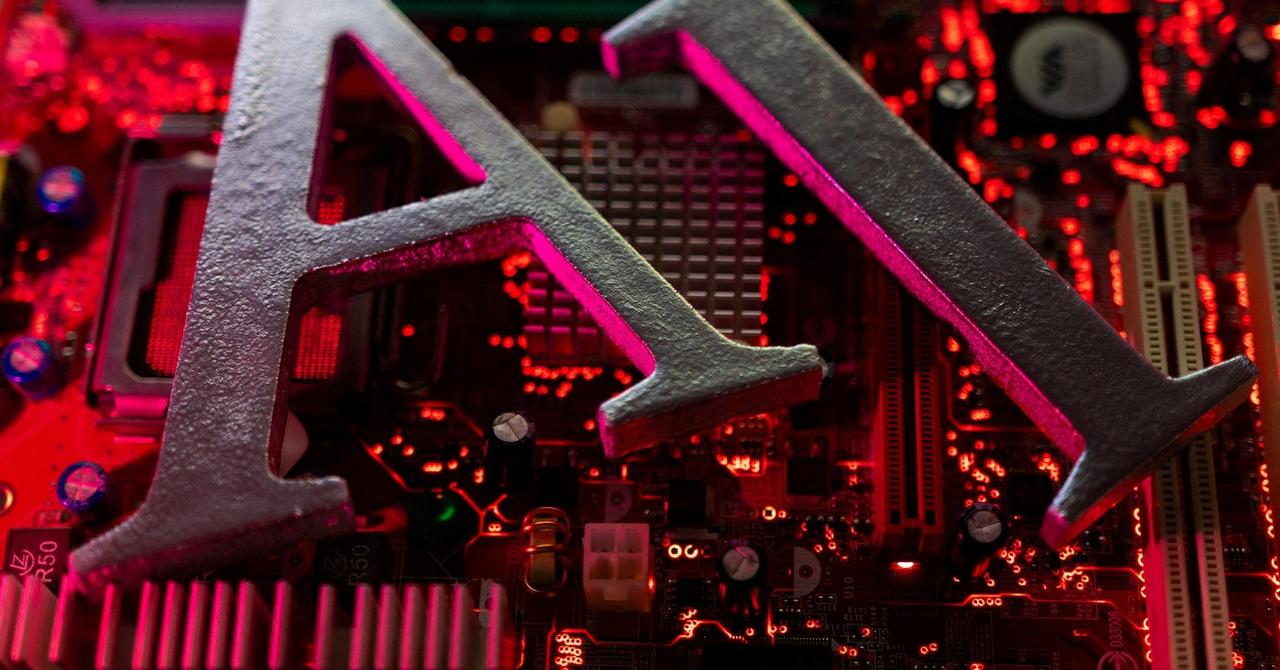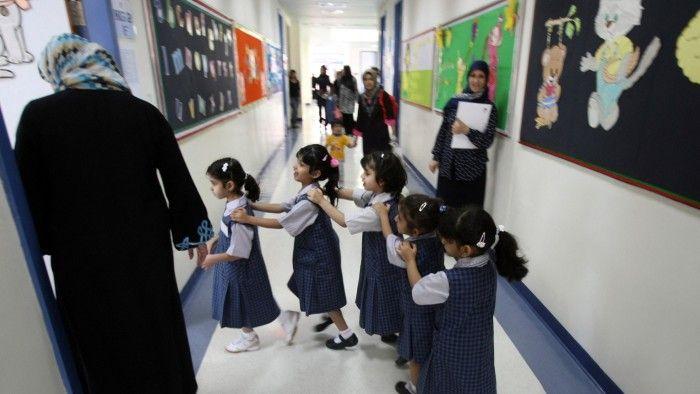Estonia Pioneers AI Education Initiative in High Schools with OpenAI and Anthropic
2 Sources
2 Sources
[1]
Estonia launches AI in high schools with US tech groups
Estonia is teaming up with OpenAI and Anthropic to launch a nationwide drive to teach artificial intelligence skills to high school students, aiming to help prepare them for jobs of the future. The initiative, known as AI Leap, draws on the Baltic country's public digital infrastructure built over the past 30 years and its strong educational culture. Estonia is ranked top among European countries in the international Pisa education tests. Estonia's President Alar Karis said the initiative was not intended to replace teachers in the classroom but to develop critical thinking among students and awareness of AI. "We have to learn how to use it," he told the Financial Times. "AI is everywhere." From September, 20,000 high school students, aged 16 and 17, will have free access to AI-learning tools. Some 3,000 teachers are already beginning training workshops on using AI tools in the classroom. The initiative will be extended to vocational schools -- and possibly younger pupils -- next year, adding another 38,000 students and 2,000 teachers. The government said it was in advanced talks with OpenAI and Anthropic to use their AI tools for free, but would be open to working with other companies. The extensive digitisation of Estonian society over the past few decades has provided training sets for Estonian language AI models even though the country has a population of just 1.3mn. Students' data, which is subject to EU data protection rules, will be firewalled and not included in the training sets of the technology companies' AI models. The US tech companies have said they are keen to support the Estonian initiative to strengthen their own expertise in education. Education minister Kristina Kallas said that education had been tightly bound up with Estonia's national identity since the 17th century as the country fought to preserve its language and culture under foreign occupation. "Headmasters and teachers were the founding fathers of the state," she said. "Education has been the social lift for Estonia to become a nation." The AI Leap initiative will be run by a public-private foundation, which has had input from Estonian entrepreneurs, including Taavet Hinrikus, the co-founder of Wise, and Jaan Tallinn, an early developer at Skype. The initial budget for AI Leap is €3.2mn, rising to €6mn next year. Kallas said schools needed to innovate to take account of AI capabilities. The scheme aims to emphasise schools serving poorer communities -- with free computers given to students where necessary -- to help close the digital divide. Teachers will decide how to incorporate AI into their lessons, Kallas said. "It's not the apps, or iPads, or laptops, or ChatGPT that's crucial here. It's the teacher," she said. "We need to trust the teachers to know what they're doing." Given the capabilities of generative AI models, asking students to write essays has become a "useless" exercise, she said. But that made it all the more important for pupils to develop their own critical thinking skills and know how to evaluate the outputs of AI models, she added. That would also help to inoculate the former Soviet state against disinformation coming from neighbouring Russia at a time of heightened international tension over the war in Ukraine. Education systems around the world have been struggling to deal with AI, with many schools looking to ban the use of mobile phones in the classroom to prevent students from using it. But Hinrikus, the Wise co-founder, said schools had to be prepared to experiment more with technology. "It's clear that AI is coming and people who are better at using AI will have an enormous advantage," he said. Karis brushed aside concerns that Estonia would depend on the US for technology just as some experts worry about its dependence on Washington for security against the threat of neighbouring Russia. "We have several allies also where security is concerned, it's not just the US. The transatlantic bond is important for Europe," he said. "We have to rely on big [companies] because even with the new tools, we can't develop everything by ourselves. We need to have allies, we need to collaborate and so forth."
[2]
Estonia announces new AI initiative to integrate chatbots into schools
The education minister said that the country's competitiveness would depend on preparing people for the age of artificial intelligence (AI). Estonia has announced a new artificial intelligence (AI) initiative that will provide students and teachers access to popular chatbots such as an educational version of ChatGPT in a bid to help them build new digital skills. "Artificial intelligence has permanently changed the world, and like all sectors, the education system must adapt to these changes," Estonian President Alar Karis said in a statement on Tuesday. Called "AI Leap," the programme will initially include 20,000 high schoolers and 3,000 teachers from September 1, 2025, the education ministry said. Estonia then hopes to expand to vocational schools and an additional 38,000 students and 3,000 teachers from September 2026. "Estonia's economic competitiveness depends on how well we can prepare young people for the age of artificial intelligence," Kristina Kallas, the Baltic country's education and research minister, said in a statement. Kallas added that Estonia would invest in teacher training as part of the initiative. A 'model' others may follow The programme is a private-public partnership and "negotiations have begun" with US AI companies OpenAI and Anthropic, the education ministry added. OpenAI said in a statement sent to Euronews Next that it was "proud" to work with Estonia to bring ChatGPT Edu, a specialised version of its AI chatbot ChatGPT for education systems, to students and teachers. It added that the initiative would ensure the students are "better equipped as the workforce of the future". The company said Estonia was already among the top 15 countries globally for usage of ChatGPT, which was released in November 2022. Neerav Kingsland, head of business development at Anthropic added in a statement that Estonia was "creating a model that other countries will likely follow". "We're proud to support Estonia's vision of using AI to help improve the lives of teachers and provide an amazing education to every student," he said. It comes as the EU aims to increase the number of Europeans with basic digital skills to 80 per cent by 2030.
Share
Share
Copy Link
Estonia launches a nationwide program to teach AI skills to high school students, partnering with OpenAI and Anthropic to provide free access to AI learning tools.

Estonia Launches Ambitious AI Education Initiative
In a groundbreaking move, Estonia has announced the launch of "AI Leap," a nationwide initiative aimed at integrating artificial intelligence (AI) education into high schools. The program, set to begin in September 2025, will provide 20,000 high school students and 3,000 teachers with free access to AI learning tools, including educational versions of popular chatbots like ChatGPT
1
.Collaboration with Tech Giants
Estonia is partnering with leading AI companies OpenAI and Anthropic to implement this initiative. The country is in advanced talks to use their AI tools for free, demonstrating a unique public-private partnership approach. OpenAI has expressed pride in bringing ChatGPT Edu, a specialized version for education systems, to Estonian students and teachers
2
.Scope and Expansion Plans
The initial phase of AI Leap will focus on high school students aged 16 and 17. The Estonian government plans to expand the program to vocational schools in 2026, potentially reaching an additional 38,000 students and 2,000 teachers. This expansion underscores Estonia's commitment to preparing its youth for an AI-driven future
1
.Educational Approach and Objectives
Estonia's Education Minister, Kristina Kallas, emphasized that the initiative aims to develop critical thinking skills and AI awareness among students, rather than replacing teachers. The program will allow teachers to decide how to incorporate AI into their lessons, fostering innovation in education. Kallas noted that traditional exercises like essay writing may become "useless" given AI capabilities, highlighting the need for new approaches to education
1
.Addressing Digital Divide and Disinformation
The AI Leap initiative also aims to bridge the digital divide by providing free computers to students in poorer communities. Additionally, the program is seen as a tool to help inoculate students against disinformation, particularly important given Estonia's geopolitical context
1
.Related Stories
Estonia's Digital Leadership
This initiative builds on Estonia's strong digital infrastructure and educational culture. The country ranks top among European nations in international Pisa education tests and has a history of digital innovation. Estonia's extensive digitization over the past decades has provided valuable training sets for Estonian language AI models, despite its small population of 1.3 million
1
.Global Implications and Future Outlook
Estonia's AI Leap initiative is being viewed as a potential model for other countries to follow. Neerav Kingsland from Anthropic stated that Estonia is "creating a model that other countries will likely follow"
2
. This aligns with the EU's goal of increasing the number of Europeans with basic digital skills to 80% by 2030, positioning Estonia at the forefront of AI education in Europe.References
Summarized by
Navi
Related Stories
Recent Highlights
1
OpenAI secures $110 billion funding round from Amazon, Nvidia, and SoftBank at $730B valuation
Business and Economy

2
Anthropic stands firm against Pentagon's demand for unrestricted military AI access
Policy and Regulation

3
Pentagon Clashes With AI Firms Over Autonomous Weapons and Mass Surveillance Red Lines
Policy and Regulation








